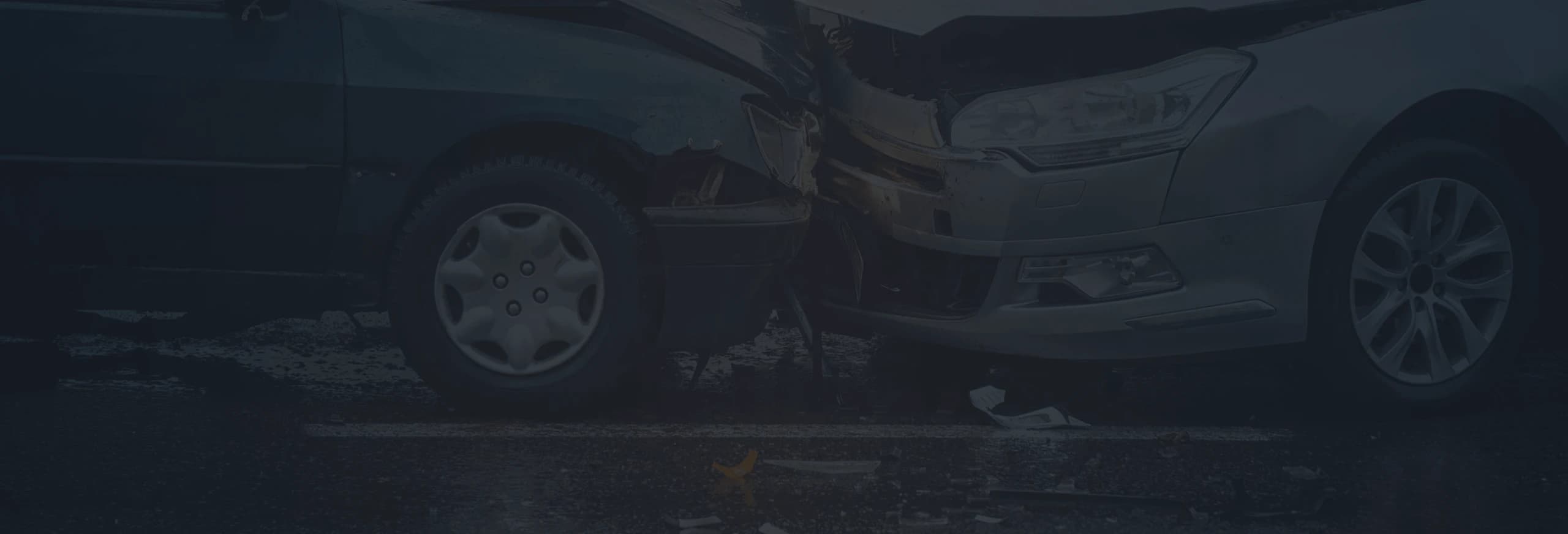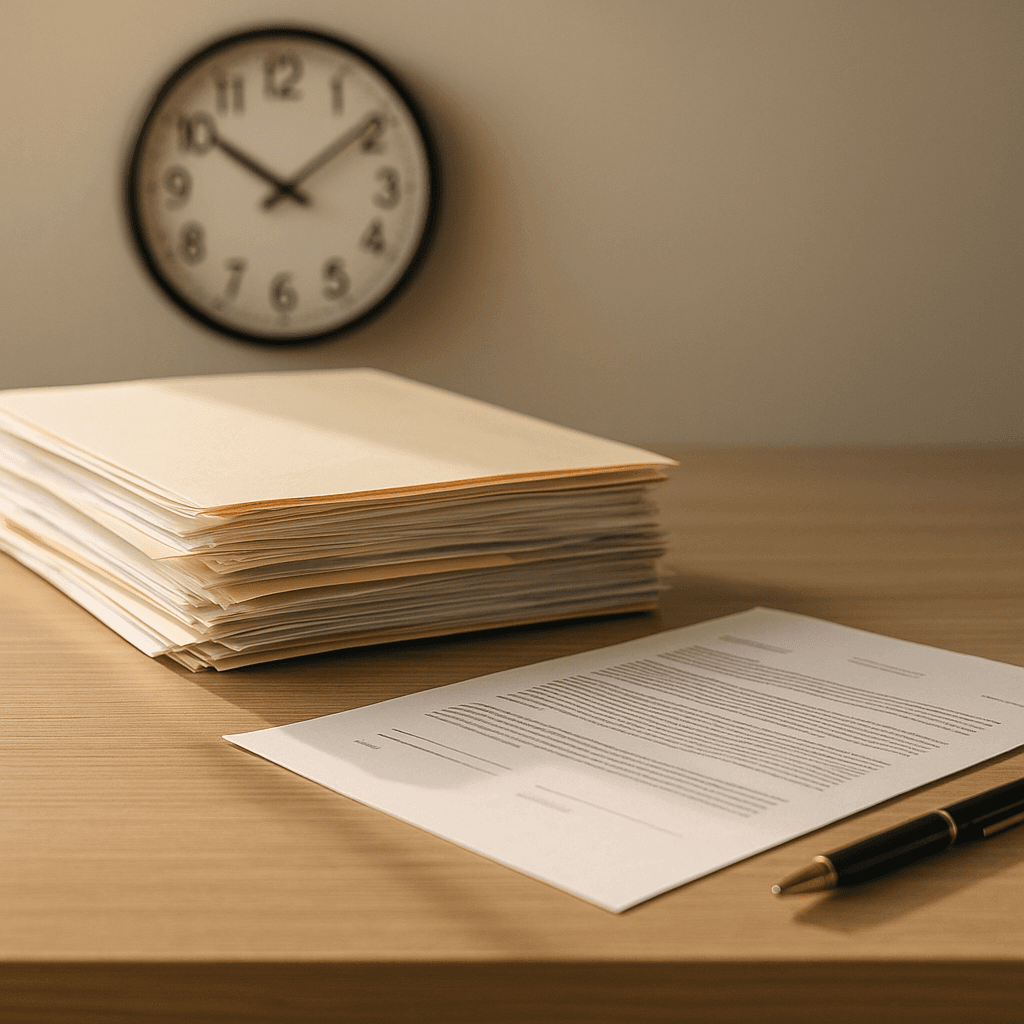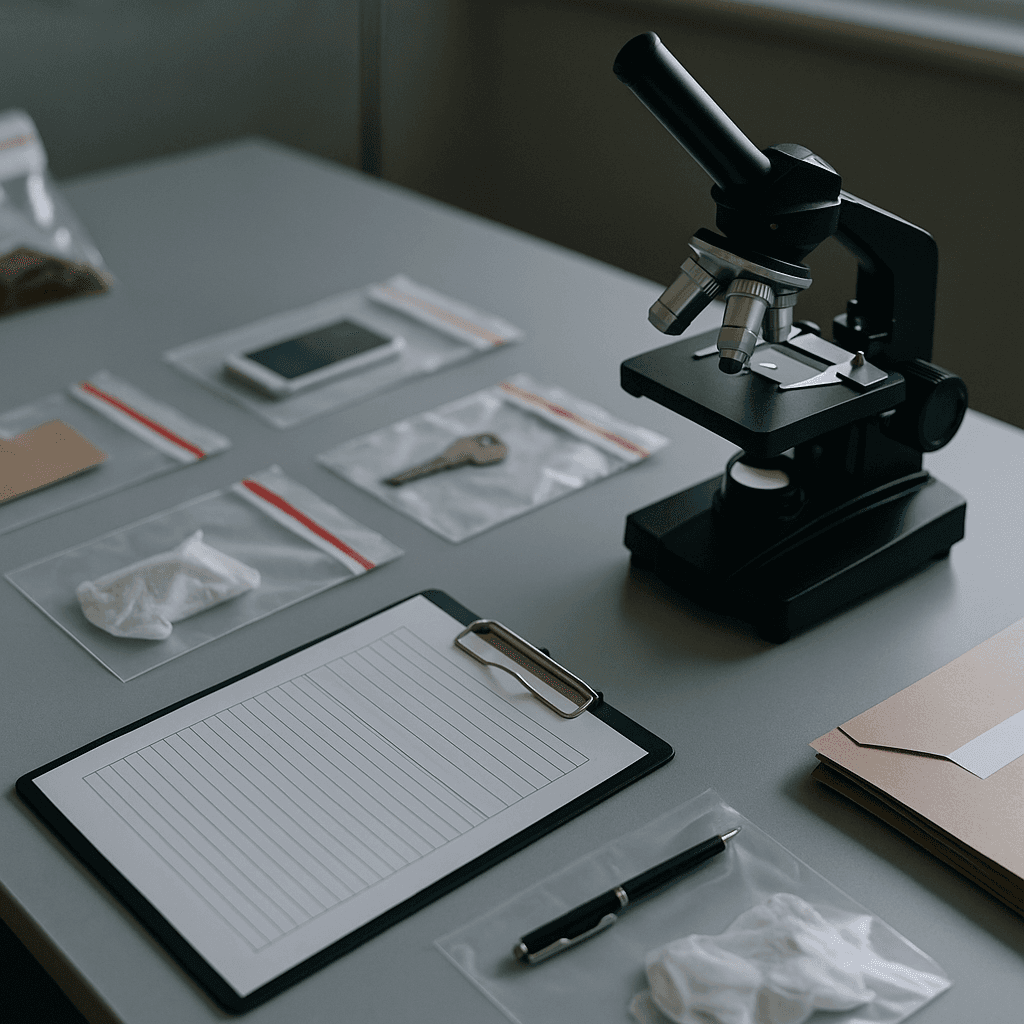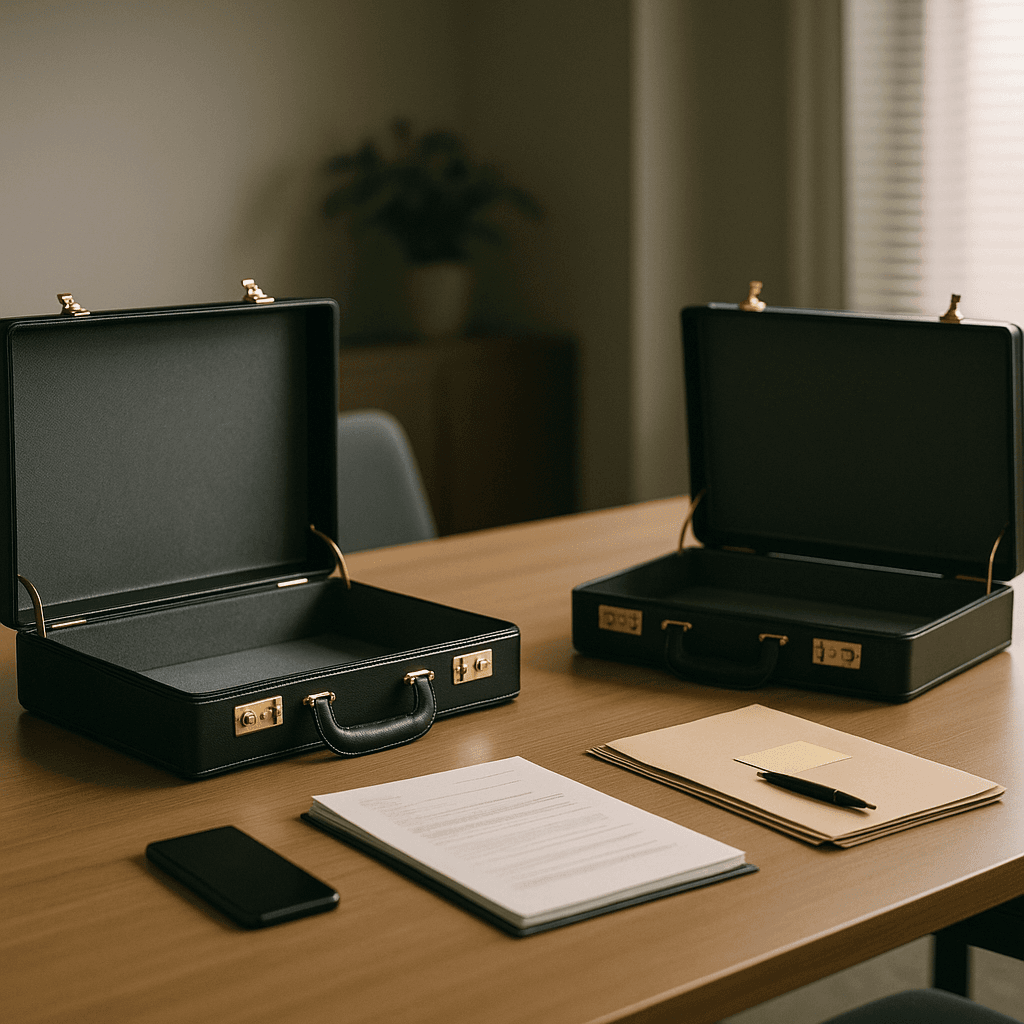
The Timeline of a Personal Injury Case: From Accident to Settlement

The First Moments After an Accident
A personal injury case begins the moment an accident occurs. Whether it's a car crash, a slip and fall, or another unexpected event, the first steps you take can have a significant impact on your case later. Immediate medical attention should always be the top priority, both for your health and to document your injuries. After ensuring safety, gathering details—such as photographs, witness information, and police reports—helps build the foundation of your claim.
What many people don't realize is that every injury case revolves around the concept of duty of care, the legal responsibility one person owes another to act reasonably and prevent harm. For instance, drivers have a duty to operate vehicles safely, and property owners must maintain safe environments. When this duty is violated, the negligent party becomes liable for resulting damages. Understanding how this obligation shapes every stage of a claim helps victims appreciate why early documentation and evidence matter so much. The importance of this foundational concept is reflected in how the duty of care defines accountability and responsibility, as outlined in understanding the duty of care in personal injury law.
Seeking Medical Treatment and Evaluation
After the immediate aftermath of an accident, medical evaluation plays a crucial role—not only in recovery but also in proving your claim. Insurance companies and courts often rely heavily on medical records to assess the extent of injury and its impact on your life. It's essential to follow all treatment recommendations, attend follow-up appointments, and keep records of all expenses related to your injury.
Medical evidence connects the accident to the injury—a principle known as causation. To secure fair compensation, victims must prove that their injuries were directly caused by the defendant's negligent actions. Establishing this link often requires testimony from doctors or experts who can explain how the accident led to the harm suffered. Without this connection, even clear negligence may not result in compensation. This crucial link between cause and effect forms the backbone of every successful claim, as emphasized in understanding causation: linking negligence to your injury.
Consulting a Personal Injury Lawyer
Once your injuries have been stabilized, consulting an experienced attorney should be the next major step. A skilled personal injury lawyer can evaluate the details of your case, explain your rights, and handle the complex communication with insurance adjusters. Attorneys not only understand the nuances of liability and evidence but also ensure that victims avoid common pitfalls—such as making recorded statements that insurers might use against them.
From the very start, an attorney serves as both advisor and advocate, helping to calculate damages, gather expert testimony, and negotiate fair settlements. This stage also involves evaluating who was at fault, which brings us to the concept of comparative fault—a legal standard that can significantly affect the outcome of your case.
Determining Fault and Liability
Determining who is at fault for an accident is not always straightforward. Sometimes, multiple parties share responsibility. Under comparative fault laws, each party's degree of negligence determines how compensation is divided. If you are found partially responsible, your total recovery may be reduced accordingly.
For example, imagine a pedestrian crossing outside a crosswalk who is struck by a speeding driver. Both parties contributed to the accident, but to different extents. Comparative fault ensures that compensation is fair, reflecting each party's role in causing the harm. Understanding how shared responsibility affects settlements is crucial for managing expectations and negotiating effectively. This principle is explained in more depth through how comparative fault can impact your settlement, where fault distribution shapes the final compensation outcome.
Establishing Negligence or Recklessness
Once fault is analyzed, your lawyer works to prove the defendant's behavior met the legal standard for negligence—or, in some cases, recklessness. Negligence occurs when someone fails to act as a reasonable person would under similar circumstances, such as running a red light or failing to fix a known hazard. Recklessness, however, involves a conscious disregard for others' safety, like texting while driving at high speeds or driving under the influence.
The distinction matters because recklessness can lead to higher damages or even punitive awards. Proving intent or awareness of risk strengthens your position during settlement discussions. Knowing how to differentiate between these behaviors is vital to building a persuasive claim, as reflected in the difference between negligence and recklessness.
The Investigation and Negotiation Phase
Once the evidence has been collected, your attorney will work to build a strong case. This involves reviewing medical reports, obtaining witness statements, consulting experts, and evaluating financial losses. During this phase, the defendant's insurance company typically conducts its own investigation and may propose early settlement offers.
While it may be tempting to accept a quick payout, these initial offers are often far below what victims truly deserve. Your attorney will negotiate based on evidence, the extent of your injuries, and future financial needs such as ongoing medical care or lost earning capacity. Settlement negotiations can take time, but they are designed to ensure fair compensation without the delays of a trial.
The Role of Myths and Misunderstandings
A significant challenge during this process is misinformation. Many people hesitate to file claims because they believe personal injury lawsuits are drawn out, frivolous, or only benefit attorneys. In reality, most cases are resolved through negotiation rather than trial, and they exist to protect victims from financial and emotional distress caused by another's negligence.
Dispelling these misconceptions empowers victims to make informed decisions. Recognizing that personal injury claims are rooted in fairness—not exploitation—helps restore confidence in pursuing justice. Understanding these truths is crucial for anyone navigating the process, much like the principles explored in common myths about personal injury lawsuits, where clarity replaces misconception in the pursuit of justice.
Reaching Settlement or Going to Trial
If both sides agree on fair compensation, the case ends in a settlement. However, if negotiations fail, the matter may proceed to court. A trial allows a judge or jury to determine liability and damages based on the evidence presented. While litigation can extend the timeline, it may also lead to a more just outcome when insurers refuse to negotiate in good faith.
Throughout this process, the attorney's role remains pivotal—managing filings, preparing witnesses, and advocating for your rights. Whether your case settles out of court or goes to trial, the end goal remains the same: securing compensation that reflects the physical, emotional, and financial toll of the injury.
The Importance of Patience and Persistence
A personal injury case can take months or even years, depending on its complexity. However, understanding each phase—from the accident itself to settlement—can help set realistic expectations. The process may seem daunting, but it exists to ensure fairness and accountability.
With the guidance of an experienced legal team, victims can focus on healing while their attorneys handle the intricate legal and procedural demands. Each step, from proving duty and causation to addressing comparative fault and dispelling myths, contributes to achieving a resolution that restores stability and justice.
Blog Posts:

The Role of Expert Witnesses in Injury Litigation
Why Expert Witnesses Matter in Personal Injury Cases In personal injury litigation, facts alone are often not enough. While evidence like medical records, photographs, and witness statements paint part of the picture, juries and insurance companies frequently need context and explanation to understand the full scope of an injury and its impact. This is where expert witnesses play a pivotal role. Expert witnesses are professionals—often doctors, engineers, economists, or accident reconstruction specialists—who provide testimony based on their specialized knowledge. Their objective is not to advocate for one side but to clarify complex issues that require professional interpretation. In many cases, their opinions help bridge the gap between evidence and understanding, making them critical to achieving fair compensation.

How Insurance Companies Evaluate Injury Claims
How the Evaluation Process Really Works When you file a personal injury claim, the insurance company begins a process that is anything but simple. Behind every offer or denial, there's a calculated evaluation designed to protect their bottom line. Insurers use data-driven methods, past claim outcomes, and internal guidelines to assess how much—if anything—they believe your case is worth. The goal of the insurance adjuster is straightforward: to settle your claim for as little as possible while closing the file quickly. They'll review your medical records, accident details, and even statements you've made to determine liability and damages. The more organized and detailed your claim presentation, the harder it is for them to undervalue it.

The Dangers of Handling a Personal Injury Case Without Legal Help
Understanding What's at Stake After an accident, it's natural to want to resolve things quickly. Medical bills begin piling up, your work may be disrupted, and insurance adjusters often seem eager to "help." Many people believe they can handle their personal injury claim on their own—especially if the situation seems straightforward. But personal injury law is complex, and even minor missteps can lead to significant financial loss. Without professional guidance, you may underestimate your claim's value, miss critical deadlines, or make statements that insurers later use against you. The legal process is designed to protect both sides, and insurance companies have experienced professionals working to limit payouts. Without an equally skilled advocate on your side, you're at a clear disadvantage. That's why consulting a personal injury lawyer early in the process is often the difference between fair compensation and a costly mistake.

When Should You Switch to a Different Injury Lawyer?
Knowing When It's Time for a Change Choosing the right attorney after an accident is one of the most important decisions you'll make in your recovery journey. However, not every lawyer-client relationship is a perfect fit. Sometimes, despite your best efforts, you may realize that your current representation isn't meeting your expectations. Whether it's poor communication, lack of progress, or a sense that your case isn't being handled effectively, recognizing when to switch attorneys can make all the difference in the outcome of your claim. Switching to a new personal injury lawyer doesn't mean starting over from scratch—it means taking control of your case and ensuring it receives the attention and effort it deserves. Understanding what to expect from your legal representation can help you identify the warning signs that it might be time for a change.
Get an agent on the line in seconds
Responsive
Legal Assistance
Our personal injury attorneys advocate for the funds necessary to cover bills, secure medical treatment, recoup lost wages, and provide compensation for your pain and suffering.
Are you facing unfair treatment from the insurance company?
Do you know the value of your case?
Is the insurance company asserting that the accident is your responsibility?

We'll get back to you ASAP.
Get Your Free Consultation
You Pay Nothing Unless We Recover Compensation For You
